
Lesbian, gay, bisexual, and transgender (LGBT) rights in the Republic of Ireland are regarded as some of the most progressive in Europe and the world. Ireland is notable for its transformation from a country holding overwhelmingly conservative attitudes toward LGBT issues, in part due to the opposition by the Roman Catholic Church, to one holding overwhelmingly liberal views in the space of a generation. In May 2015, Ireland became the first country to legalise same-sex marriage on a national level by popular vote. The New York Times declared that the result put Ireland at the "vanguard of social change". Since July 2015, transgender people in Ireland can self-declare their gender for the purpose of updating passports, driving licences, obtaining new birth certificates, and getting married. Both male and female expressions of homosexuality were decriminalised in 1993, and most forms of discrimination based on sexual orientation are now outlawed. Ireland also forbids incitement to hatred based on sexual orientation. Article 41 of the Constitution of Ireland explicitly protects the right to marriage irrespective of sex.

Lesbian, gay, bisexual, and transgender (LGBT) rights in Australia rank among the highest in the world; having significantly advanced over the latter half of the 20th century and early 21st century. Opinion polls and the Australian Marriage Law Postal Survey indicate widespread popular support for same-sex marriage within the nation. A 2013 Pew Research poll found that 79% of Australians agreed that homosexuality should be accepted by society, making it the fifth-most supportive country surveyed in the world. With its long history of LGBT activism and annual Gay and Lesbian Mardi Gras festival, Sydney has been named one of the most gay-friendly cities in the world.

Ian Keith Hunter is an Australian politician, representing the South Australian Branch of the Australian Labor Party in the South Australian Legislative Council since the 2006 state election. Hunter served in the Cabinet of South Australia from October 2011 to 2018.
Tasmania's Relationships Act 2003 provided for registration and recognition of a type of registered partnership in two distinct categories: Significant Relationships and Caring Relationships. The same Act also amended 73 pieces of legislation to provide registered partners with nearly all of the rights offered to married couples within the state. Furthermore, since July 2009, these relationships are recognised at federal level, providing couples with almost all of the federal rights and benefits of marriage. The legislation came into effect on 1 January 2004. In September 2010, the Parliament of Tasmania approved legislation to recognize same-sex unions performed outside Tasmania as significant relationships.

Lesbian, gay, bisexual and transgender (LGBT) rights have evolved significantly in the past decades in the British Overseas Territory of Gibraltar. Same-sex sexual activity has been legal since 1993 and the age of consent was equalised to 16 in 2012. The Supreme Court of Gibraltar ruled in April 2013 that same-sex couples have the right to adopt. Civil partnerships have been available to both same-sex and opposite-sex couples since March 2014, and in October 2016, Gibraltar voted to legalise same-sex marriage with the Civil Marriage Amendment Act 2016 passing unanimously in Parliament. The law received royal assent on 1 November and took effect on 15 December 2016.

Lesbian, gay, bisexual, and transgender (LGBT) rights in Scotland are generally in line with the rest of the United Kingdom, which have evolved extensively over time and are now regarded as some of the most progressive in Europe. In both 2015 and 2016, Scotland was recognised as the "best country in Europe for LGBTI legal equality".

Lesbian, gay, bisexual, and transgender (LGBT) rights in Queensland have advanced significantly from the late 20th century onwards, in line with progress on LGBT rights in Australia nationally. 2019 polling on gay rights consistently showed that even in regional areas, Queensland is no more conservative about the subject than any other states.

Lesbian, gay, bisexual, and transgender (LGBT) people in the Australian state of New South Wales have most of the same rights and responsibilities as non-LGBT people.
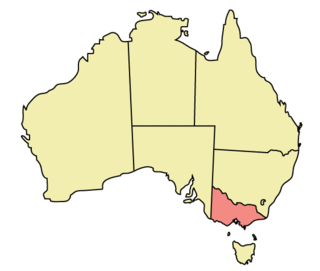
The Australian state of Victoria is regarded as one of the country's most progressive jurisdictions with respect to the rights of lesbian, gay, bisexual, and transgender (LGBT) people.
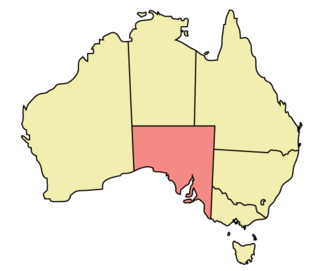
The rights of lesbian, gay, bisexual, and transgender (LGBT) people in the Australian state of South Australia are advanced and well-established. South Australia has had a chequered history with respect to the rights of LGBT people. Initially, the state was a national pioneer of LGBT rights in Australia, being the first in the country to decriminalise homosexuality and to introduce a non-discriminatory age of consent for all sexual activity. Subsequently, the state fell behind other Australian jurisdictions in areas including relationship recognition and parenting, with the most recent law reforms regarding the recognition of same-sex relationships, LGBT adoption and strengthened anti-discrimination laws passed in 2016 and went into effect in 2017.
Surrogacy in India and Indian surrogates became increasingly popular amongst intended parents in industrialised nations because of the relatively low costs and easy access offered by Indian surrogacy agencies. Clinics charged patients between $10,000 and $28,000 for the complete package, including fertilization, the surrogate's fee, and delivery of the baby at a hospital. Including the costs of flight tickets, medical procedures and hotels, this represented roughly a third of the price of the procedure in the UK and a fifth of that in the US. Surrogate mothers received medical, nutritional and overall health care through surrogacy agreements.

The establishment of lesbian, gay, bisexual, and transgender (LGBT) rights in the U.S. state of Vermont is a recent occurrence, with most progress having taken place in the late 20th and the early 21st centuries. Vermont was one of 37 U.S. states, along with the District of Columbia, that issued marriage licenses to same-sex couples until the landmark Supreme Court ruling of Obergefell v. Hodges, establishing equal marriage rights for same-sex couples nationwide.

The legal aspects of surrogacy in any particular jurisdiction tend to hinge on a few central questions:
Until 2017, laws related to LGBTQ+ couples adopting children varied by state. Some states granted full adoption rights to same-sex couples, while others banned same-sex adoption or only allowed one partner in a same-sex relationship to adopt the biological child of the other.

Lesbian, gay, bisexual, and transgender (LGBT) people in the Australian state of Tasmania have the same legal rights as non-LGBT people. Tasmania has a transformative history with respect to the rights of LGBT people. Initially dubbed "Bigots' Island" by international media due to intense social and political hostility to LGBT rights up until the late 1990s, the state has subsequently been recognised for LGBT law reforms that have been described by activists such as Rodney Croome as among the most extensive and noteworthy in the world. Tasmania's criminal penalties for homosexual activity were the harshest in the Western world when they were repealed in 1997. It was the last Australian jurisdiction to decriminalise homosexuality after a United Nations Human Rights Committee ruling, the passage of federal sexual privacy legislation and a High Court challenge to the state's anti-homosexuality laws. Following decriminalisation, social and political attitudes in the state rapidly shifted in favour of LGBT rights ahead of national trends with strong anti-LGBT discrimination laws passed in 1999, and the first state relationship registration scheme to include same-sex couples introduced in 2003. In 2019, Tasmania passed and implemented the world's most progressive gender-optional birth certificate laws. In July 2023, the Tasmanian government officially included and also added "asexual or asexuality".
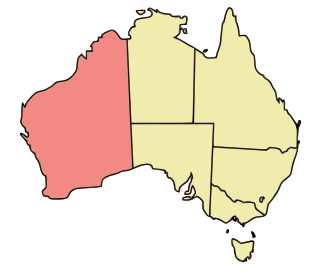
Lesbian, gay, bisexual and transgender (LGBT) rights in Western Australia have seen significant progress since the beginning of the 21st century, with male sex acts legal since 1990 and the state parliament passing comprehensive law reforms in 2002. The state decriminalised male homosexual acts in 1990 and was the first to grant full adoption rights to LGBT couples in 2002.
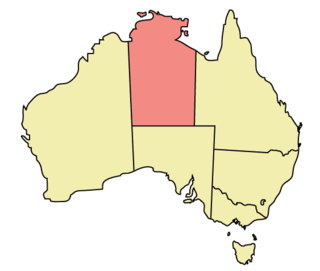
Lesbian, gay, bisexual, and transgender (LGBT) people in Australia's Northern Territory have the same legal rights as non-LGBT people. The liberalisation of the rights of lesbian, gay, bisexual and transgender (LGBT) people in Australia's Northern Territory has been a gradual process. Homosexual activity was legalised in 1983, with an equal age of consent since 2003. Same-sex couples are recognised as de facto relationships. There was no local civil union or domestic partnership registration scheme before the introduction of nationwide same-sex marriage in December 2017, following the passage of the Marriage Amendment Act 2017 by the Australian Parliament. The 2017 Australian Marriage Law Postal Survey, designed to gauge public support for same-sex marriage in Australia, returned a 60.6% "Yes" response in the territory. LGBT people are protected from discrimination by both territory and federal law, though the territory's hate crime law does not cover sexual orientation or gender identity. The territory was the last jurisdiction in Australia to legally allow same-sex couples to adopt children.
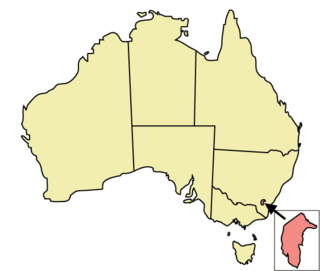
The Australian Capital Territory (ACT) is one of Australia's leading jurisdictions with respect to the rights of lesbian, gay, bisexual, and transgender (LGBT) people. The ACT has made a number of reforms to territory law designed to prevent discrimination of LGBT people; it was the only state or territory jurisdiction in Australia to pass a law for same-sex marriage, which was later overturned by the High Court of Australia. The Australian Capital Territory, Victoria, New South Wales and Queensland are the only jurisdictions within Australia to legally ban conversion therapy on children. The ACT's laws also apply to the smaller Jervis Bay Territory.
LGBT parents in Canada have undergone significant progress in terms of both legal and social acceptance. Same-sex couples who wish for parenthood now enjoy equally the possibilities, responsibilities and rights of opposite-sex couples. Following the nationwide legalization of same-sex marriage in 2005, the number of LGBT families in Canada has increased substantially, paving the way for same-sex couples' aspirations of having their own children. Legal methods of assisted reproduction range from insemination via IVF through to surrogacy arrangements.
Surrogacy is legal in New Zealand if it is performed altruistically, where the surrogate donates her services selflessly, without any compensation beyond the coverage of expenses. Commercial surrogacy, where the surrogate is paid in addition to the coverage of expenses, is not legal. There is a lack of specific legislation and regulations dealing with surrogacy, though the recent increase in surrogacy cases has led to a number of amendments. New Zealand is party to the United Nations Convention on the Rights of the Child, and ratified it in April 1993. The primary principle of this convention is that the best interests of the child are paramount, which must then encompass all surrogacy agreements and regulations. The lack of clear surrogacy legislation in New Zealand has led to many couples engaging in reproductive tourism in order to ensure the surrogacy is successful. This has the potential to significantly impact the human rights of all of the parties involved.














